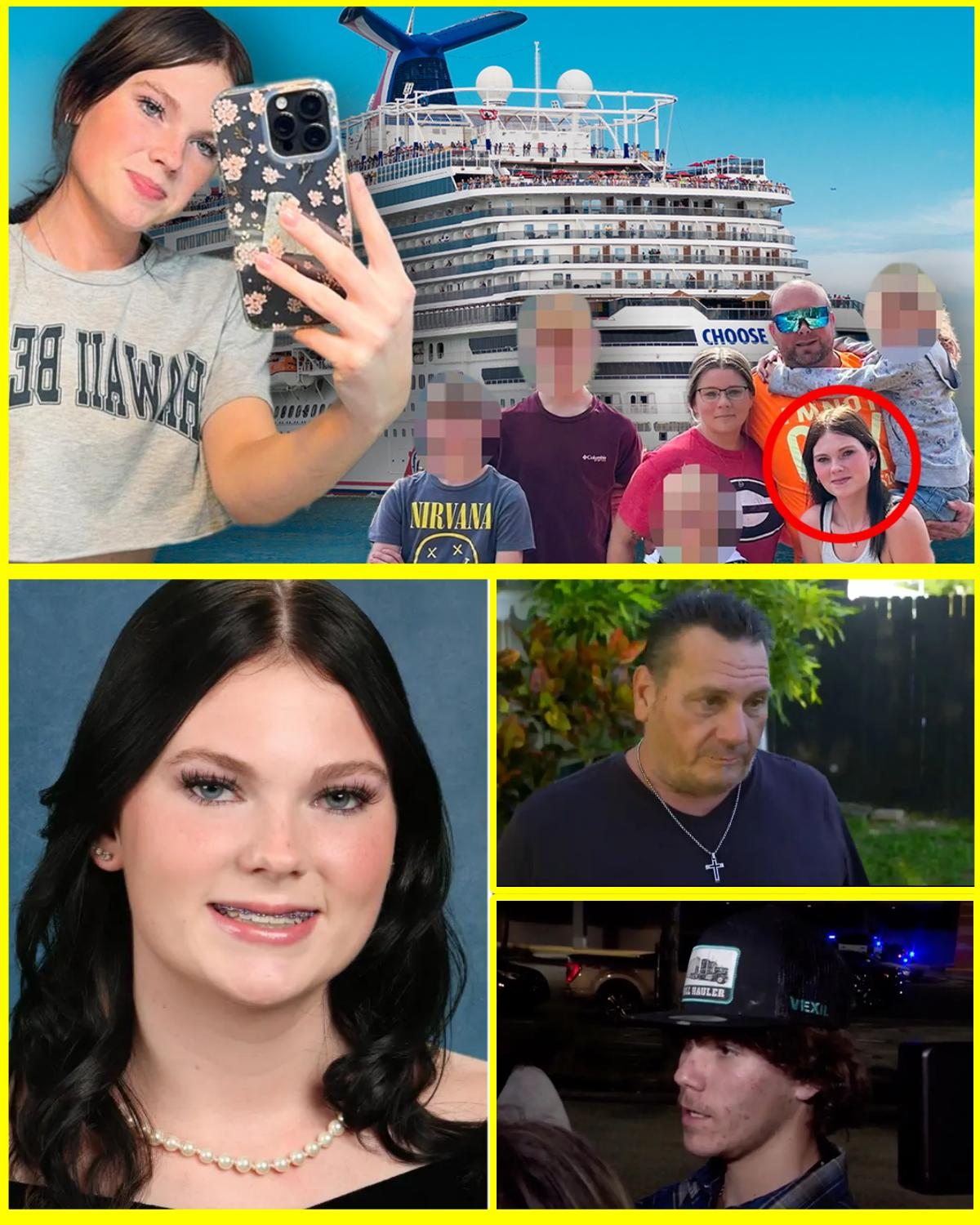The Carnival Horizon, one of the flagship vessels of Carnival Cruise Line, was carrying thousands of passengers on a six-day Caribbean journey when an unexpected tragedy transformed what should have been a celebratory family vacation into a case now under federal investigation. On November 7, 18-year-old Florida student Anna Kepner was found deceased inside her cabin. Her passing has prompted a wide-reaching inquiry by the FBI, raised difficult questions about supervision, family dynamics, and communication, and left a Florida community grieving a young life lost far too soon.
Anna Kepner was a student at Temple Christian School in Titusville, Florida. Friends and teachers described her as warm-spirited, energetic, and dedicated to her goals. She was known for her enthusiasm for cheerleading, her close bond with her siblings, and her long-term ambition to join the U.S. Navy with hopes of working in K-9 law enforcement.
Like many teens her age, she was balancing academics, extracurricular activities, and the everyday challenges of growing up within a blended family. People close to her recall her as someone who encouraged others and approached life with determination, optimism, and care for those around her.

In early November, Anna joined her father, stepmother, and siblings on a Caribbean cruise aboard the Carnival Horizon. According to family acquaintances, the vacation was intended as an opportunity for bonding and relaxation.
Anna shared a cabin with her 14-year-old biological brother and a 16-year-old stepbrother. The arrangement, common on family cruises, placed the three teens in close quarters throughout the trip. The ship, filled with tourists enjoying activities, restaurants, and ocean views, presented itself as a secure environment—one where families routinely feel comfortable allowing teens some independence.
What unfolded during that voyage, however, would reveal a difficult and tragic set of circumstances.
Public statements and reports indicate that Anna was last seen by her family the evening before her death. According to investigators, she returned to the cabin early, citing that she did not feel well. Her siblings returned later, and her younger brother reportedly believed she had gone to spend time with their parents elsewhere on the ship.
The next morning, on November 7 at approximately 11:17 a.m., a member of the ship’s housekeeping staff discovered Anna unresponsive inside the cabin while performing routine cleaning duties. Carnival staff immediately notified onboard medical personnel, and the FBI was alerted when the ship docked at Port Miami.
Out of respect for Anna and her family, authorities have not released detailed information regarding conditions inside the cabin or the specific cause of her passing. Investigators have emphasized that they are working with great care, especially given that individuals under the age of 18 are involved.
Because the incident occurred in international waters aboard a U.S.-based vessel, the FBI has primary jurisdiction. Officials have confirmed that Anna’s 16-year-old stepbrother is being treated as a “suspect” for investigative purposes, a designation that does not imply guilt but indicates the direction of the inquiry. Due to his age, federal law limits the amount of information that can be released about him or his involvement.
Court documents have confirmed that the teen is currently receiving psychiatric care. Investigators are examining multiple factors, including timelines, statements from family members, and potential warning signs that may have preceded the incident.
Authorities have not made public comments on a possible motive or whether any charges might be filed. They have asked the public to avoid speculation while the investigation continues.
As news of Anna’s death reached the public, aspects of her family’s history came under renewed attention. Her biological parents had divorced more than a decade earlier, followed by custody arrangements and remarriages that created a blended household. Records show instances of past disagreements between adults within the extended family, though none have been directly linked to the events aboard the cruise ship.
The complexities of blended families—different parenting styles, varying expectations, and history between households—can be challenging even in the best of circumstances. Several people close to the family have spoken about longstanding difficulties, including communication barriers and tension between the households.
One detail that drew significant attention was that Anna’s biological mother, Heather, said she was not allowed to attend the memorial service held after her daughter’s passing. She expressed a desire to pay her respects regardless and stated she intended to attend quietly.
These difficult family dynamics, while unrelated to the official cause of death, have added emotional layers to an already devastating situation for all involved.
News of Anna’s death reverberated through Titusville, where she was well known in school and community circles. A memorial service at The Grove Church drew a large crowd of classmates, teachers, friends, and neighbors seeking to honor her memory. Attendees wore bright colors—at the family’s request—to reflect Anna’s vibrant personality rather than traditional mourning attire.
Her obituary highlighted her kindness toward her siblings, her aspirations to serve her country, and her commitment to caring for others. Teachers shared memories of her positive attitude, her determination, and her ability to encourage those around her.
The tragedy has sparked ongoing conversations about teen safety, supervision, communication between parents and children, and recognizing warning signs. With much of the case still under investigation, several important questions remain unanswered:
– What exactly occurred in the hours leading up to Anna’s death?
– Were signs of conflict or risk visible before the trip?
– How might supervision protocols have played a role?
– What support will be necessary for the surviving siblings and extended family?
Authorities have emphasized that the investigative process is methodical. Because minors are involved and the case involves sensitive circumstances, information will likely continue to be limited until the FBI completes its review.
Although many details remain private, the confirmed facts alone have left a deep impact on both the family and the broader community. The loss of an 18-year-old with clear goals, a supportive social circle, and a bright future has brought forth profound sadness and a desire for answers.
Anna’s story is now part of a larger conversation about protecting young people, addressing concerns early within blended families, and ensuring that travel or shared living arrangements provide appropriate safety and oversight. The incident has also renewed discussions among parents and educators about the mental and emotional well-being of teenagers navigating complex family environments.
What remains most important at this stage is supporting the family, respecting the privacy of minors, and allowing investigators the time and space needed to determine the truth with accuracy and care.
Those who knew Anna continue to emphasize not the circumstances of her passing, but the way she lived. Her friends describe her as someone who made others feel included, who pursued her goals with determination, and who remained hopeful about her future career and service. Her story has become a reminder of how fragile life can be—and how necessary it is to listen, communicate, and support young people who may be navigating challenges unseen from the outside.
As the investigation moves forward, Anna Kepner will be remembered not only for the tragedy that ended her life, but for the warmth, ambition, and dedication that defined it.
Sources
– FBI public statements on cruise ship investigations
– Reporting from Inside Edition
– Local coverage from Florida news outlets
– Public obituary and memorial announcements






